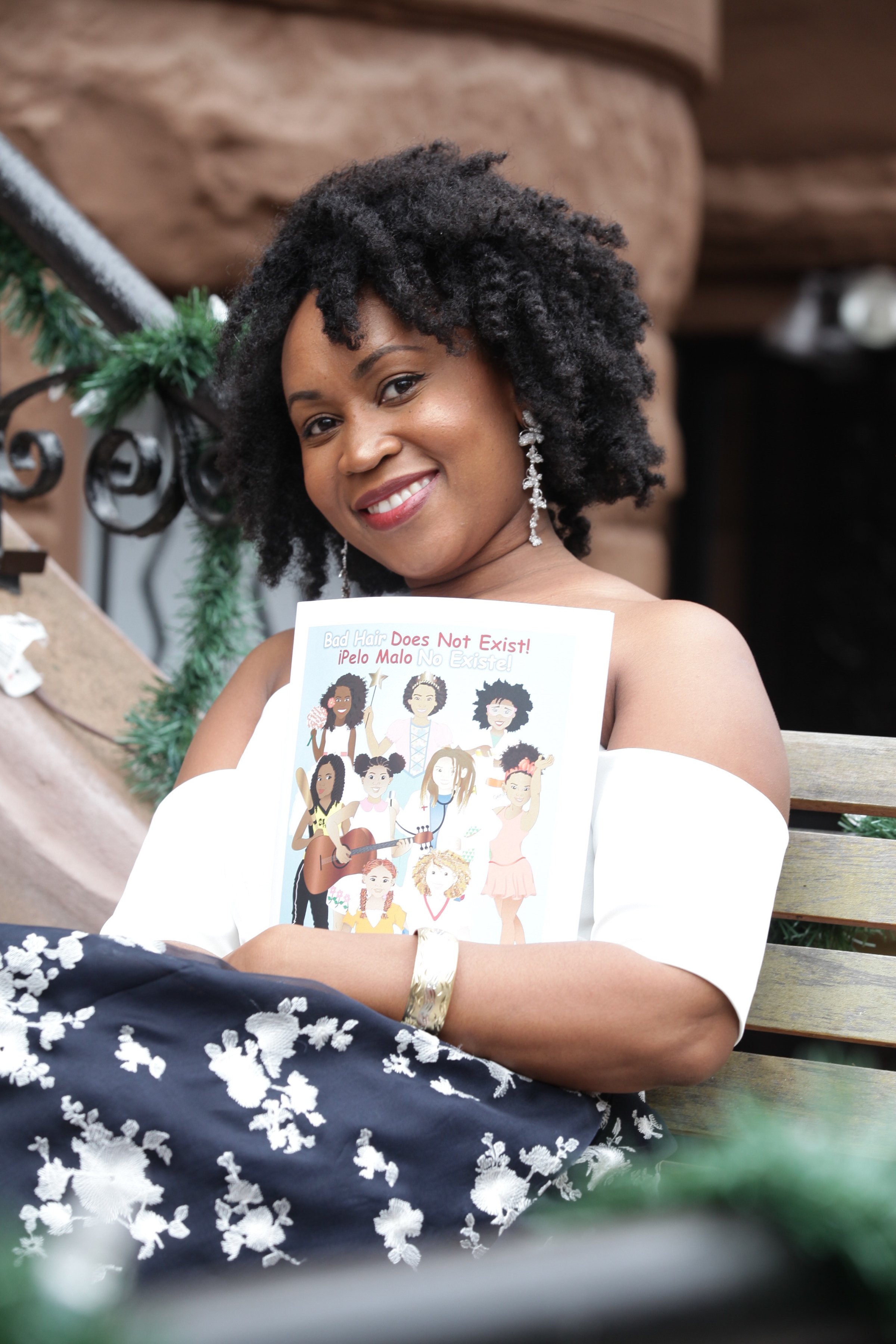
I’m 5 feet tall, if you round up. People calling out “Yo shorty” is part of my daily dose of swagalicious ghetto twang.
My name is Sulma, and I am a Garifuna from Honduras. My mother moved us to the United States in 1985 because she believed living here would be our only shot at success. Despite the challenges of growing up in the South Bronx and my own typical teenage drama, I graduated college, got a good job, married a man like my dad and built a home like that of my own upbringing. This “shorty” was no joke.
From the age of 12 on, I spent a minimum of three hours every six weeks at the hair salon getting my hair relaxed. I did a weekly wash and roller set. Without fail, this was my routine summer, spring, winter or fall.
In the summer of 2013, I went to touch up the roots of my chemically relaxed hair. Walking to the hair salon felt different that day. This time, the thought of that procedure inspired words that redefined my life, “I need to cut my hair off!”
It was emotional seeing my shoulder-length hair fall to the ground, chunks at a time, and then swept into a garbage can. When it was over, I felt like the 2-year-old Sulma was looking at the grown up woman and recognized her! I felt so complete.
As I walked out, I got a “Hey, beautiful,” then a “Hey, Afro” and then a “I like your natural.” I actually felt more respected with my natural hair.
About a year later, my 3-year-old daughter played a key role in this story. The nice lady at the daycare used a colloquial Spanish term to describe my daughter’s afro. She advised me to straighten her “pelo malo,” which literally translates to “bad hair.”
Although it wasn’t malicious, my mommy defense mode went from zero to a hundred. It was my turn be the example and that hero my mom was for me.
I chose a respectful dialogue, which included alternate terms for “bad hair” like long, short, afro, curly, straight, etc. I promised to find a book to teach this, so we could work to elevate the self-esteem of all the children under her care. But I couldn’t find that book. So I wrote it myself.
“Bad Hair Does Not Exist/Pelo Malo No Existe!” is a bilingual book for all ages. It kindly dismisses the term “bad hair/pelo malo” with beautiful images of girls with all skin shades, body sizes and hair types. It’s about love, community and respect for differences. My goal is to get this book in the hands of as many as possible, and pave the way for more diversity everywhere. My goal is for hair products to stop pushing a standard of beauty, because this message, inspired by a 3-year-old girl, is needed whether “pelo malo” is in your vernacular or not.
Trust me, you don’t want to miss out on those beautiful words — “I like your natural” — because that compliment is deeper than hair. “Natural” is about you.
Sulma Arzu-Brown is the President of Sulma LLC. She is an author, investor and the Director of Operations for the NYC Hispanic Chamber of Commerce. To read learn more about her please visit www.nopelomalo.com.
More Must-Reads From TIME
- The 100 Most Influential People of 2024
- The Revolution of Yulia Navalnaya
- 6 Compliments That Land Every Time
- What's the Deal With the Bitcoin Halving?
- If You're Dating Right Now , You're Brave: Column
- The AI That Could Heal a Divided Internet
- Fallout Is a Brilliant Model for the Future of Video Game Adaptations
- Want Weekly Recs on What to Watch, Read, and More? Sign Up for Worth Your Time
Contact us at letters@time.com